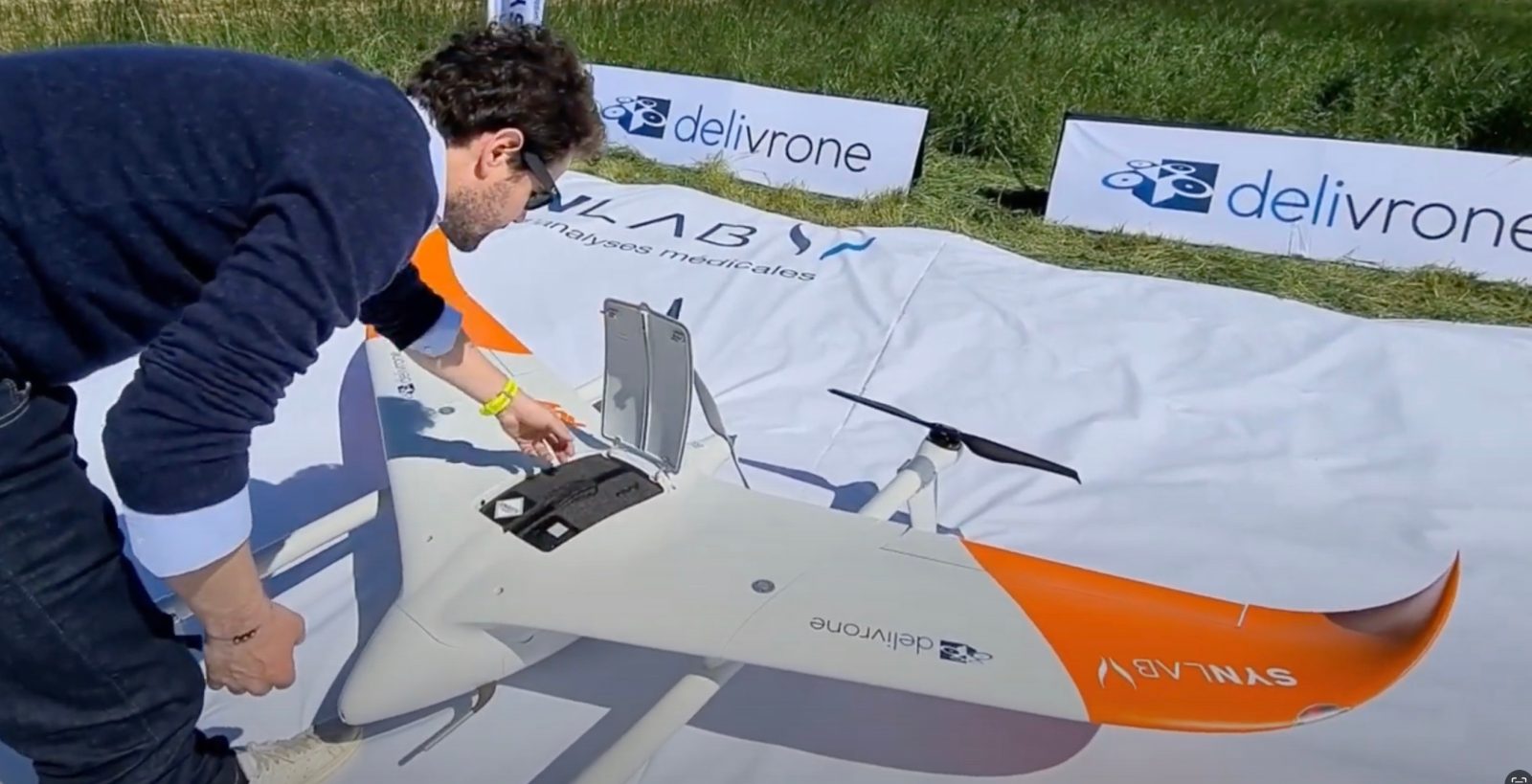
A French tech startup is to looking to speed the processing of medical analyses – and resulting treatment – by delivering patient samples between medical facilities using drones for a group of hospitals in the country’s Normandy region.
Based in the Norman city of Rouen, drone services company Délivrone has been carrying out test flights in the northwest area of France this month as part of its effort to join the growing activity of delivering analysis samples to hospital labs by drone. The current project looks to cover the 41-kilometer distance between facilities in the cities of Maubeuge and Valenciennes using UAVs to halve 45-minute travel time by road.
With trials continuing toward a planned launch early next year, the Maubeuge-Valenciennes patient sample delivery route is one of several drone transport proposals Délivrone is working on with hospitals in Normandy and the North regions of France.
Using a mix of quadcopter, hectacopter, and fixed wing craft for their differing speed, weight, and endurance capacities, the startup is pursuing plans to deploy UAVs to shuttle blood, urine, and cerebrospinal fluid taken from patients between buildings of the same hospital complex, clinics separated by just several kilometers, and longer hauls of 50 nearly km.
Only a limited number of medical organizations in France have thus far relocated transportation of their analysis materials from the nation’s packed roads to the skies, but several in the Normandy region alone are now testing drones as a near-term delivery option.
French medical organizations that have adopted aerial transport of samples are now part of the globally rapidly growing practice of using faster, cheaper, and non-polluting UAV tech to speed patient samples, medicines, and urgent supplies between hospitals.
Swiss company Regitech alone has launched those activities in its home market, France, and most recently Uruguay. UK drone delivery specialist Skyports has been at work in that area since the early days of the Covid pandemic, and recently completed successful trials in Thailand. Similar services are aloft across the US and Canada as well.
According to Pierre Houssin, who is heading the Maubeuge-Valenciennes project, avoiding delays from traffic snarls on the roads by using drones to speed the completion of sample results will permit doctors to prescribe necessary treatments faster in normal cases – and could prove critical in faster diagnosis of diseases like meningitis and malaria.
“We are always on the lookout for new technologies,” Houssin told France Info radio of the decision by hospitals to create drone bridges between them as a means of speeding and improving medical treatment they provide. “If we mutualize that activity, we’ll increase our effectiveness, and be able to procure the most modern (drone) equipment.”
FTC: We use income earning auto affiliate links. More.



Comments